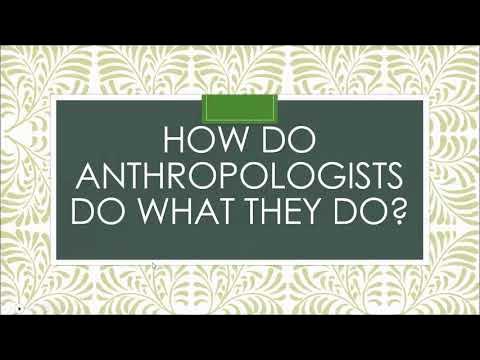Understanding the Self Lesson 2 Psychological View of the Self Part One (Tagalog Dubbed)
Summary
TLDRThis lecture explores the psychological perspective of the self, tracing the shift from philosophical ideas to scientific study. It introduces psychology as the scientific study of thought, feelings, and behavior, and explains personality as the unique traits shaping individuals. The lecture focuses on Sigmund Freud's psychoanalytic theory, detailing the conscious, preconscious, and unconscious mind, the id, ego, and superego, and the five psychosexual stages of development from infancy to adulthood. Key concepts like fixation and defense mechanisms, including repression, denial, and sublimation, are explained with practical examples, illustrating how early experiences shape personality and adult behavior.
Takeaways
- 😀 Psychology is the scientific study of how we think, feel, and behave, emerging from a shift from philosophical to scientific approaches.
- 😀 Freud's iceberg model divides consciousness into three levels: conscious, preconscious, and unconscious, with the unconscious deeply influencing our behavior.
- 😀 Personality, according to Freud, is shaped by internal conflict between the id (pleasure-driven), ego (reality-based), and superego (morally-driven).
- 😀 The ego mediates between the desires of the id and the moral standards of the superego, aiming for realistic solutions.
- 😀 Freud proposed that unresolved conflicts from early stages of development can lead to personality fixations in adulthood.
- 😀 Freud’s psychosexual stages of development include oral, anal, phallic, latency, and genital stages, each influencing adult personality traits.
- 😀 Fixations in the oral stage can lead to oral aggression (talkative, argumentative) or oral passivity (thumb-sucking, overeating).
- 😀 The anal stage emphasizes toilet training, with fixations resulting in anal expulsive (chaotic, disorganized) or anal retentive (tidy, controlling) personalities.
- 😀 The phallic stage involves the Oedipus and Electra complexes, where children experience attraction to the opposite-sex parent and rivalry with the same-sex parent.
- 😀 In the genital stage, sexual energy shifts towards others, with the goal of forming healthy romantic relationships and sexual intimacy in adulthood.
- 😀 Defense mechanisms are unconscious strategies used by the ego to protect from anxiety, including repression, denial, projection, and sublimation, among others.
Q & A
What is the scientific definition of psychology?
-Psychology is the scientific study of how we think, feel, and behave. It combines empirical research and observation to understand the mind and behavior.
How does personality relate to psychology?
-Personality refers to the unique and stable characteristics that define an individual. In psychology, understanding personality helps explain how people behave, react, and interact with others.
What are the three levels of consciousness according to Freud?
-Freud described consciousness as an iceberg with three levels: the conscious (thoughts and feelings we are aware of), the preconscious (memories and thoughts easily brought into awareness), and the unconscious (hidden desires and memories influencing behavior).
What are the roles of the id, ego, and superego in personality?
-The id is the primitive, pleasure-seeking part of personality; the superego is the internal moral compass; and the ego mediates between the id and superego, using the reality principle to make balanced decisions.
What are Freud's five psychosexual stages of development?
-Freud's stages are: 1) Oral (0–1 year), 2) Anal (1–3 years), 3) Phallic (3–6 years), 4) Latency (6–puberty), and 5) Genital (puberty–adulthood). Each stage focuses on specific erogenous zones and developmental challenges.
How can unresolved psychosexual stages affect adult personality?
-Unresolved stages can lead to fixation, causing certain personality traits or behaviors in adulthood. For example, oral fixation can result in excessive eating or smoking, while anal fixation can lead to being overly controlling or disorganized.
What is the Oedipus complex, and how does it affect development?
-The Oedipus complex occurs in boys during the phallic stage, involving desire for the mother and rivalry with the father. Resolving this conflict helps boys develop their identity, moral compass, and social behavior.
What are defense mechanisms, and why are they important?
-Defense mechanisms are unconscious strategies used by the ego to protect against anxiety, conflict, or unacceptable impulses. They help maintain psychological stability but can cause problems if overused.
Can you give examples of common defense mechanisms?
-Yes. Examples include: repression (pushing thoughts into the unconscious), denial (refusing to accept reality), regression (returning to childlike behavior), projection (attributing one’s feelings to others), displacement (redirecting emotions), reaction formation (acting opposite to true feelings), rationalization (justifying actions), sublimation (channeling impulses into productive activities), and introjection (internalizing others’ values).
Why is the genital stage important in Freud's theory?
-The genital stage, beginning at puberty, focuses on forming mature romantic and sexual relationships. Successfully navigating previous stages allows individuals to develop healthy intimacy, love, and sexual fulfillment in adulthood.
What is the role of early childhood experiences in shaping personality?
-Early experiences, especially in the first five years, heavily influence personality development. How a child navigates psychosexual stages, receives parental guidance, and overcomes conflicts affects their long-term social, emotional, and behavioral patterns.
Outlines

This section is available to paid users only. Please upgrade to access this part.
Upgrade NowMindmap

This section is available to paid users only. Please upgrade to access this part.
Upgrade NowKeywords

This section is available to paid users only. Please upgrade to access this part.
Upgrade NowHighlights

This section is available to paid users only. Please upgrade to access this part.
Upgrade NowTranscripts

This section is available to paid users only. Please upgrade to access this part.
Upgrade NowBrowse More Related Video
5.0 / 5 (0 votes)





